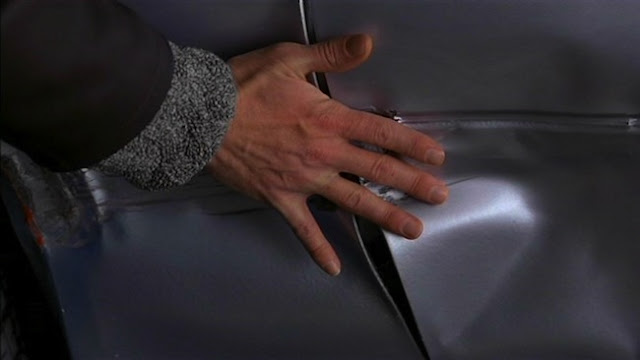White light, white heat: invisible Lou
Now, this counts as a good blog entry, via Kottke, one Adam Greenfield on sighting one certain celebrity: "We had biked over to the shadow-dappled streets of the West Village, where the continental-style bistros are so thick on the ground that you can pick one more or less at random and be assured of getting the experience you're looking for... We had just locked our bikes up and sat down to breakfast, when who should shamble in but a shabby-genteel Lou Reed, walking a poky-looking beagle. And it took everything I had in me not to flinch or violate his space or in any other way give myself away. About all I could think, for a good 5 minutes, was how glad I was that I hadn't, after all, worn my White Light/White Heat t-shirt.... See, Lou Reed invented me. I am, at root, nothing but a skinny Jewish kid from the suburbs. And if I'm sitting here with my shaved head, and my sunglasses and tattoos, and 20 solid years of cherished sensual, chemical and experiential escapades under my belt, it's because this man gave me permission to try all that on for size. If Lewis Allen Reed had not existed, had not written and sung about the things that he did, I'd probably be a flabby, thwarted associate at some Philadelphia litigation firm, bitterly serving time and wondering when life was going to kick into gear. Or—far more likely, really, given how much those songs meant to me at some very difficult... points in my life—I'd be dead. Never mind that, to all accounts, he's been lost in his own assholity for decades now, unwilling or unable to forge human connections with anyone who dares to express so much as a grunt of admiration for him. Hearing that voice a meter behind my head, muttering about utter banalities in the same monotone that once nullified my life and told me it was OK to make it anew, well, let me tell you it sent a thrill through me. And despite all the reasons I've enumerated above, I let it. And then—because this is, after all, New York, and because I find my wife still more fascinating than the proximity of any number of teenage heroes—I turned my attention back to our own table, our own food and drink, the buzz of our own conversation. We finished up our meal, we retrieved our bikes, and we rode away, into the ongoing rush and joy of a life given to me in large measure by the unhappy-looking man at the table behind us."
